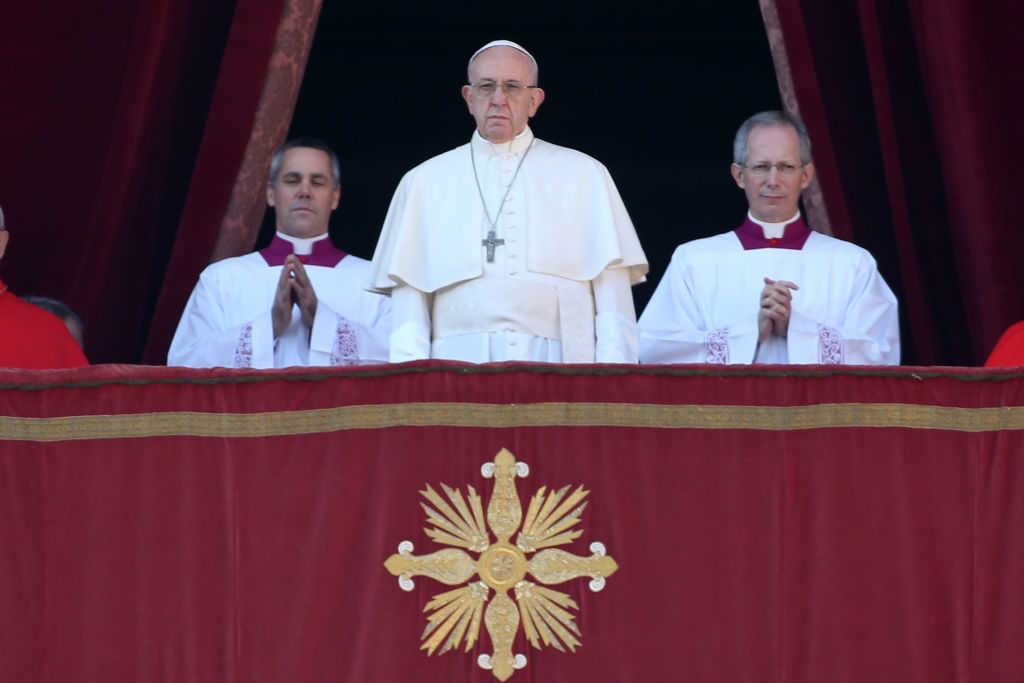Pope Francis recently became the subject of fierce theological criticism after an Italian newspaper published an interview that suggested the Catholic leader does not believe in hell.
READ: ‘Double Standard’: CNN Comes Under Fire for Praising JFK’s ‘Legendary’ Infidelity
In a conversation with Eugenio Scalfari, co-founder and first editor of La Repubblica, the pontiff was asked about the fate of “bad souls” and where they are punished, to which he reportedly replied, “They are not punished, those who repent get God’s forgiveness and go among the ranks of the souls who contemplate him, but those who do not repent and can not therefore be forgiven disappear. There is no hell, there is the disappearance of sinful souls.”
Scalfari is notorious for his unorthodox interview style — he reportedly doesn’t record the conversations but instead reconstructs them afterward. Nevertheless, the Pope’s alleged comments were widely circulated, causing an uproar across the Christian world.
The Vatican was quick to denounce the heretical comments inaccurately attributed to the Pope in a statement shared by the Catholic Herald:
“The Holy Father Francis recently received the founder of the newspaper La Repubblica in a private meeting on the occasion of Easter, without however giving him any interviews. What is reported by the author in today’s article is the result of his reconstruction, in which the textual words pronounced by the Pope are not quoted. No quotation of the aforementioned article must therefore be considered as a faithful transcription of the words of the Holy Father.”
The Catholic Church’s official teaching on the subject of Hell is clearly outlined in section 1035 of the Catechism:
“The teaching of the Church affirms the existence of hell and its eternity. Immediately after death the souls of those who die in a state of mortal sin descend into hell, where they suffer the punishments of hell, ‘eternal fire.’ The chief punishment of hell is eternal separation from God, in whom alone man can possess the life and happiness for which he was created and for which he longs.”
Many have suggested that Pope Francis may have been hinting at a personal belief of annihilationism. The Gospel Coalition’s Gavin Ortlund describes this as “the belief that the damned won’t suffer eternally but will instead have their consciousness extinguished at some point.” So, under this umbrella of theological thinking, those condemned to eternal separation from God are simply “wiped out” as opposed to being consciously tormented in the darkness of Hell.
Previous popes have affirmed the existence of Hell as a place of eternal punishment and separation from God. Pope Benedict XVI said in 2007 that hell “really exists and is eternal, even if nobody talks about it much anymore.” In 1999 Pope John Paul II declared that hell was “the ultimate consequence of sin itself … rather than a place, hell indicates the state of those who freely and definitively separate themselves from God, the source of all life and joy.” The Church holds both of these views as acceptable and in line with Catholic teaching.
Cardinal Vincent Nichols, the most senior Catholic in England and Wales, responded to the recent controversy by telling the BBC that “there’s nowhere in Catholic teaching that actually says any one person is in hell.”
He added that the Pope was exploring “the imagery of hell — fire and brimstone and all of that,” which is perfectly permissible.
(H/T: The Catholic Herald)



